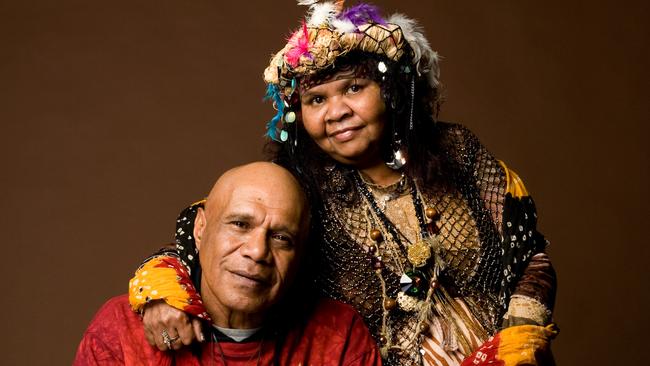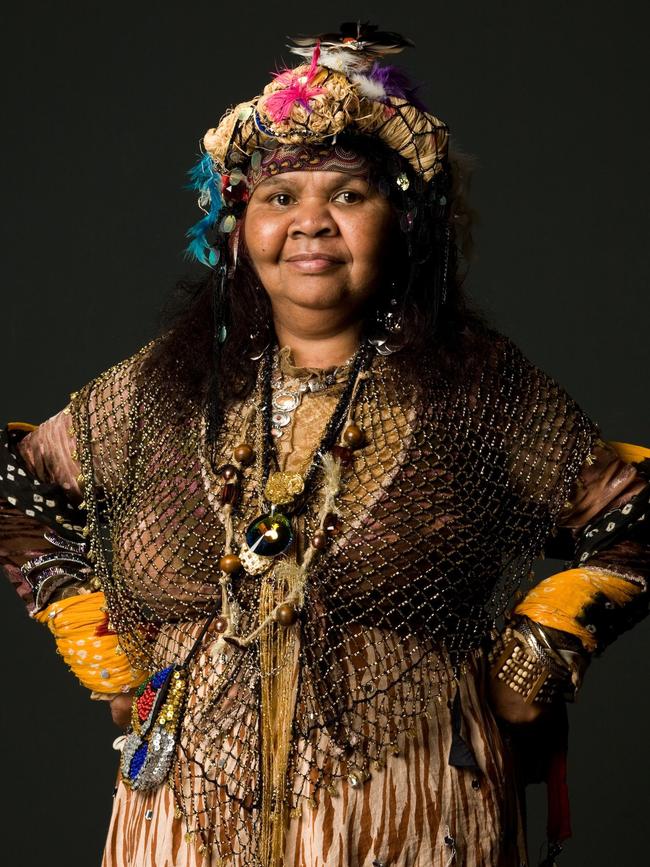Ruby Hunter joins Indigenous Music Awards hall of fame
Singer-songwriter Ruby Hunter, who died in 2010, will be inducted into National Indigenous Music Awards hall of fame.

The sad truth of Ruby Hunter being inducted into the National Indigenous Music Awards hall of fame on Saturday night is that the singer-songwriter is not here to bask in the adulation. But if she were, Archie Roach reckons she would take the honour with a cheeky quip: “It’s about time!”
Roach laughs as he says it, thinking of his beloved, respected and forthright wife who died in 2010, aged just 54.
“Her beauty was everlasting, and it still is, I suppose, when I see her in my mind’s eye,” he told The Australian. “She had this nurturing spirit, and we certainly had a few disagreements over certain things, but she seemed to win out most of the time because that’s just the way she was.”
As well as being Roach’s life partner since they met in Adelaide as homeless teenagers, Hunter played a substantial part in his decision to become a recording artist, after singer-songwriter Paul Kelly and guitarist Steve Connolly offered to capture his songs on tape.
“I was happy doing what I was doing, working as a social worker and just giving back to community,” Roach recalled. “Truly, I just wasn’t interested after they’d left, and Ruby said, ‘What do you think — do an album, Archie?’ And I said, ‘Nah, doesn’t interest me. I’m quite happy singing my songs wherever, and getting a gig here and there at some of the acoustic venues in Melbourne’.”
After a period of silence, she looked at him, put her hands on her hips and said, “Well, it’s not all about you, Archie Roach.”
What Hunter saw — that he could not — was the value, importance and resonance of Roach’s achingly personal songs, and how recording them might help other Indigenous Australians hear his voice and walk through the door that his work might crack open.

She was right, of course, and the album that resulted — his ARIA award-winning 1990 debut Charcoal Lane — became a landmark release whose power echoes today through timeless songs such as Took the Children Away.
One of the first songs Hunter wrote was Down City Streets, a track that recalled her experience of homelessness and which appeared on Charcoal Lane.
She soon became an accomplished singer-songwriter in her own right, releasing three albums including her 1994 debut, which was the first solo rock album by an Indigenous female artist. She was also the first Indigenous woman signed to a major Australian record label in Mushroom.
Hunter will join the likes of Tiddas, Sammy Butcher and Roger Knox in the National Indigenous Music Awards (NIMAs) hall of fame, while the annual celebration of excellence in songwriting and performance will be broadcast live from Darwin from 7pm Saturday on NITV and online via Facebook and YouTube.
As for how she would have received the honour if she were still here, in all seriousness, Roach said, “I’m sure she’d be most appreciative. She was proud of who she was, proud of where she came from and proud of her culture.”


To join the conversation, please log in. Don't have an account? Register
Join the conversation, you are commenting as Logout